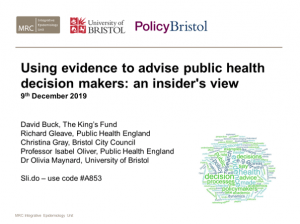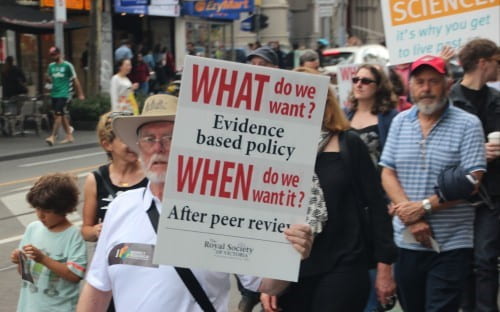 This blog post reviews a recent seminar hosted by the MRC IEU, PolicyBristol and the Bristol Population Health Science Institute.
This blog post reviews a recent seminar hosted by the MRC IEU, PolicyBristol and the Bristol Population Health Science Institute.
Public health is one of the most contested policy areas. It brings together ethical and political issues and evidence on what works, and affects us all as citizens.
Researchers produce evidence and decision-makers receive advice – but how does evidence become advice and who are the players who take research findings and present advice to politicians and budget-holders?
We were pleased to welcome a diverse audience of around 75 multidisciplinary academics, policymakers and practitioners to hear our seminar speakers give a range of insider perspectives on linking academic research with national and local decisions on what to choose, fund and implement.
In this blog post we summarise the seminar, including links to the slides and event recording. Continue reading




 Reducing arguments to simplistic – even incoherent – claims and accusations is not good for reasoned, public deliberation, says Professor John Coggon
Reducing arguments to simplistic – even incoherent – claims and accusations is not good for reasoned, public deliberation, says Professor John Coggon Professor John Coggon, Professor of Law, Bristol University
Professor John Coggon, Professor of Law, Bristol University